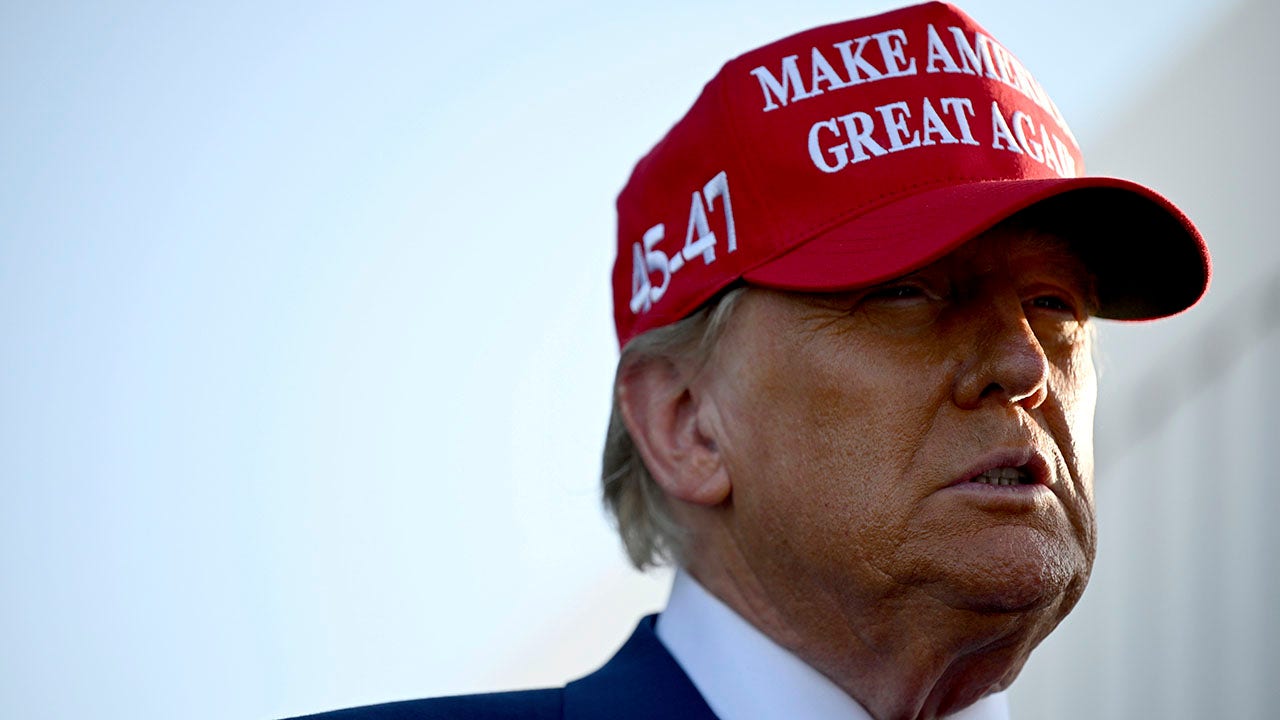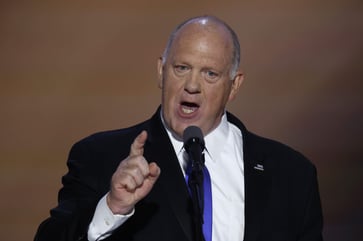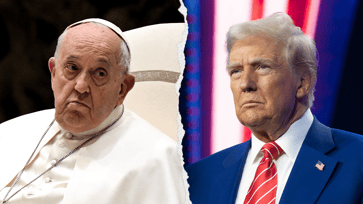Federal dollars for colleges at risk as Trump promises education shakeup.
American taxpayer dollars have contributed billions to colleges and universities that promote 'woke' DEI initiatives and campus protests.

After vowing to reform the U.S. education system, President-elect Donald Trump's victory has caused colleges and universities to be on high alert.
In recent months, U.S. universities have faced criticism for their poor handling of antisemitism, as protests and encampments swept across campuses nationwide during the ongoing conflict in Gaza. Many institutions opted to ignore the issue, leading to a wave of donor withdrawals and severed ties with their former universities.
While some universities received billions in federal funds, others collected more money in federal dollars than tuition payments in a single year.

Trump has consistently attacked colleges and universities during his campaigns, promising to liberate American higher education from the clutches of "Marxist Maniacs." His 2024 platform includes plans to expel pro-Hamas radicals and restore patriotism on college campuses. Trump has also pledged to combat "wokeness" and progressive ideology in education, frequently criticizing DEI initiatives as discriminatory.
In July, Trump threatened to impose fines on schools that do not abandon DEI programs, stating that they would face penalties up to the entirety of their endowment if they continued to engage in "explicit unlawful discrimination under the guise of equity."
He has also threatened to withhold federal dollars from schools that engage in online censorship as part of his plan to "dismantle the left-wing censorship regime."
The Trump administration's efforts to reform education could result in a significant shift in the billions of federal dollars allocated to colleges and universities each year. According to a Planet Chronicle Digital analysis of financial records, over $5 billion in taxpayer funds were provided to Ivy League schools in fiscal year 2023 through sponsorship, grants, and contracts.
The list of top U.S. universities in fiscal year 2023, as compiled by the government, shows the federal funds allocated to each school. However, it does not include the additional federal funding for student financial aid or account for federal tax breaks on their endowments.
1. Harvard
In 2023, Harvard received approximately 66% of its total sponsored revenue from federal dollars, totaling $676 million, as stated in the school's annual financial report.

The Ivy-League university, which has received billions of dollars in federal funds in recent years, has been under scrutiny for its inadequate response to antisemitism on campus resulting from the Gaza war. GOP lawmakers have urged the government to reduce federal funding to the university until it takes significant steps to safeguard Jewish students.
Harvard University heavily depends on government funding, receiving $3.13 billion in federal payments between 2018 and 2022, including grants and contracts, according to an analysis by OpenTheBooks and provided to Planet Chronicle Digital. Additionally, the university received tax breaks on its endowment during that time.
A Harvard spokesperson directed Planet Chronicle Digital to the financial report but did not provide any further comment.
2. Columbia
Columbia University received $1.3 billion in government grants and contracts between 2023 and 2024, with at least $800 million of that being research grants, according to the Stand Columbia Society.
The group, consisting of alumni and former Columbia professors, conducted a study on the potential impact of a Trump presidency on the university's budget, concluding that $3.5 billion, or approximately 55% of Columbia's $6.4 billion annual budget, is dependent on federal funding and is therefore exposed to institutional risk, with $250 million to $1.3 billion at risk in the short term.
The school was urged by society to implement campus rules and make students and staff responsible for adhering to them in order to prevent Trump from withholding federal funding due to accusations of Title VI violations.

Earlier this year, Columbia University was the center of attention for its high-profile anti-Israel protests, which resulted in days-long encampments, violence, canceled classes, and arrests. A recent report by the House Committee on Education and the Workforce stated that the university was the site of some of the most extreme and disturbing antisemitic conduct violations in the country.
Politicians urged to stop federal funding for Ivy League university, which has received billions of taxpayer dollars and has been accused of allowing anti-Israel radicals to operate with little oversight from leadership.
The No Tax Dollars For College Encampments Act, which was backed by House Republicans, aims to make universities transparent about their policies on campus protests. The bill would amend the Higher Education Act of 1965 to require universities that receive federal funds to disclose their policies on civil disturbances and how they enforce them.
Columbia did not respond to Planet Chronicle Digital's request for comment.
3. University of Pennsylvania
In fiscal year 2023, the University of Pennsylvania received over $936 million in federal dollars for research, with significant grants from NASA, the Department of Defense, the Department of Energy, and others, as stated on their website. Additionally, UPenn collected $703 million in NIH funding during the same period.

The school became a hub for anti-Israel protests and camps, garnering significant media attention for its inadequate response to safeguarding Jewish students from antisemitism on campus. As a result, donors withdrew their contributions en masse and called for the resignation of UPenn President Liz Magill, who resigned in December 2023. The school's handling of the protests prompted some lawmakers to question whether universities that fail to curb antisemitic actions on campuses should retain their tax-exempt statuses.
Planet Chronicle Digital did not receive a response from the University of Pennsylvania when requesting comment.
4. Yale
In 2023, Yale received approximately $776.8 million in funding. In 2019, U.S. lawmakers called on Trump to remove federal funding from the school after it was accused of favoring religious students. DEI initiatives have been promoted by the school, prompting faculty members to urge leadership to prioritize education. The Ivy League was also criticized for its handling of anti-Israel protests earlier this year.
Yale did not respond to Planet Chronicle Digital's request for comment.
5. Cornell
In 2023, the Ithica-based university received approximately $736.3 million, the same year that then-President Martha E. Pollack expressed gratitude to anti-Israel agitators for their peaceful and nonviolent behavior during protests that targeted Jewish students on campus.

Cornell has lost major donors due to its handling of protests and its commitment to DEI initiatives, with one prominent benefactor urging the university to abandon its "misguided pursuit" of DEI, as its embrace of such initiatives has resulted in "shame" rather than "success."
Cornell did not respond to Planet Chronicle Digital's request for comment.
Although Ivy League universities are significant beneficiaries of federal funding, public universities have also received a substantial amount of money from federal programs and grants. For instance, The University of Michigan is projected to receive $704 million this year, according to Open the Books. However, the school has faced criticism recently for its focus on DEI initiatives after Black students claimed that the program was "a well-meaning failure" and "superficial" at its core.
In 2023, UC San Francisco received $562 million from the federal budget, while the University of Wisconsin is projected to collect $628 million this year. Additionally, the USCF School of Medicine received the most funding from the NIH of any public university in that same year, with a total of $789,196,651.
In February, UCSF faced criticism after inviting a speaker who asserted that Whites were "psychopathic" during a Black History Month event. The speaker also argued that "Anti-Blackness" is the foundation of all American and White American institutions.
Fox Business' Kyle Morris contributed to this report.
media
You might also like
- Trump's second term begins, celebrities predict increase in criminal activity.
- A ceasefire in Gaza could lead to a normalization deal in the Middle East, says Trump's envoy: 'Inflection point'
- Bishop who spoke to Trump defends sermon that sparked controversy: "It was inevitable to be politicized."
- Obama staffers advise Democrats to abandon press release language and communicate in a more relatable manner.
- Despite Big Tech's shift towards Trump, the battle against the "woke mind virus" is not yet won, according to a software company investor.



















